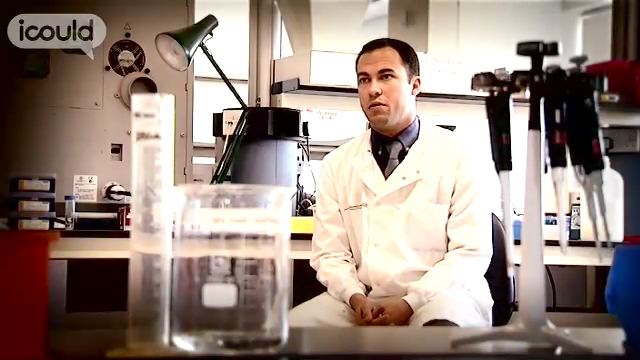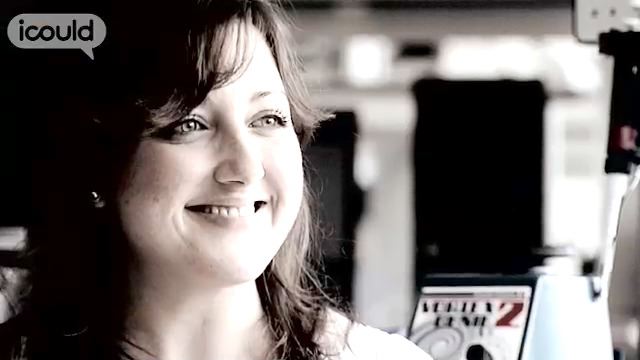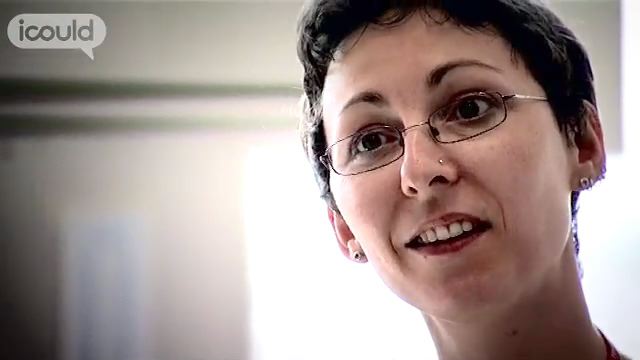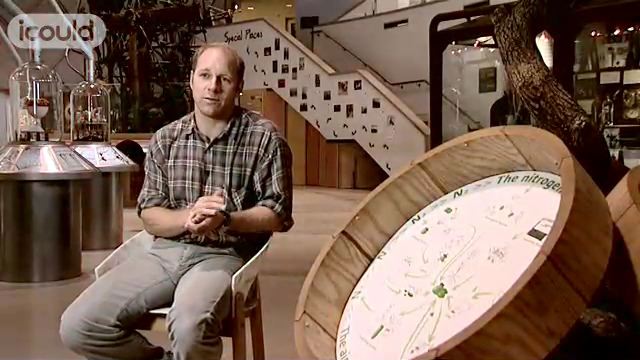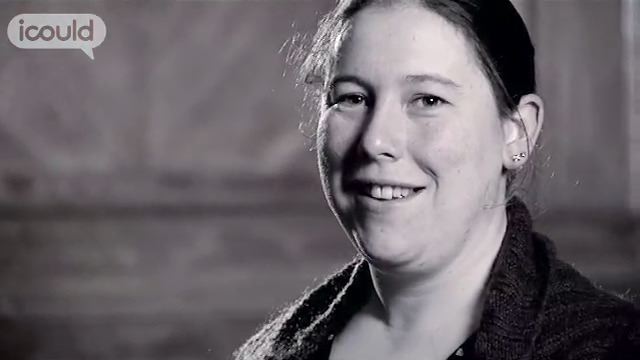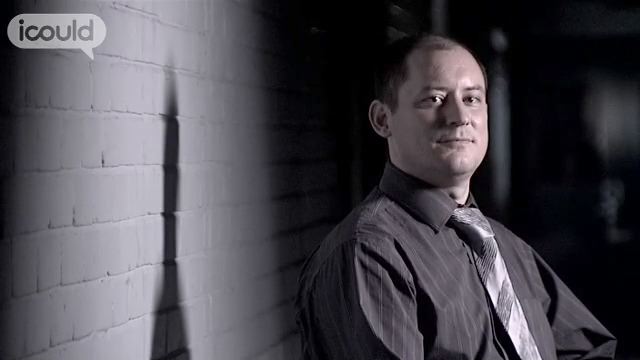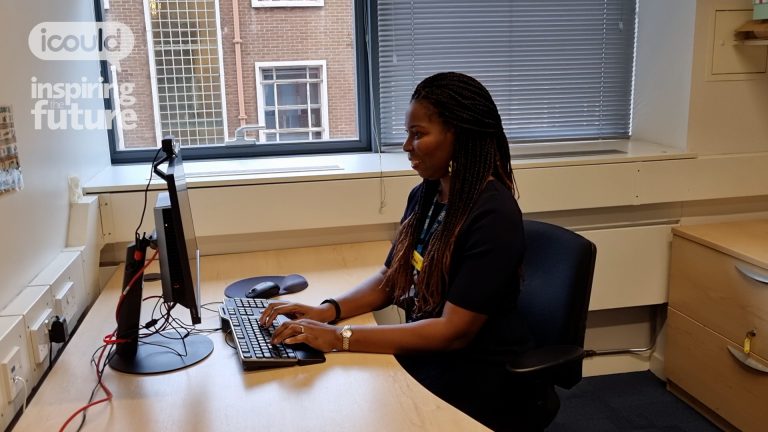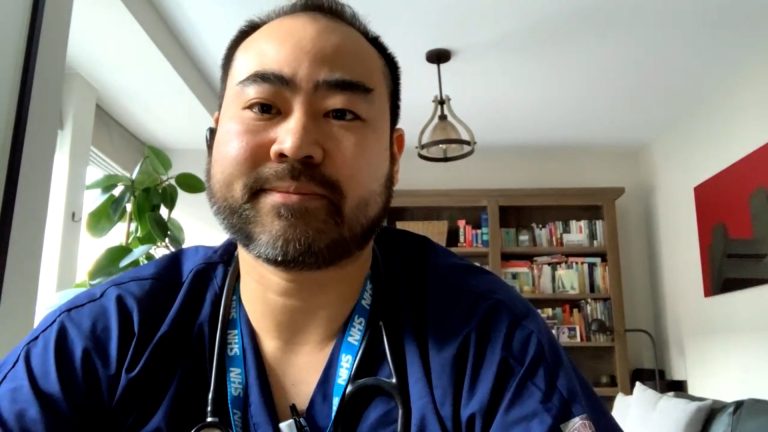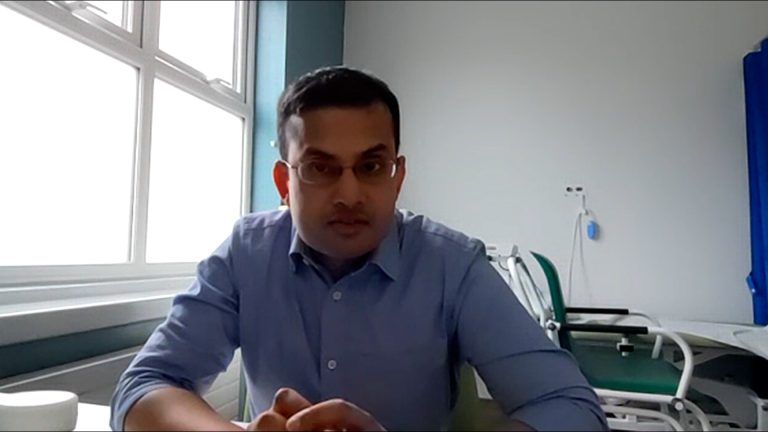Biomedical Scientist
Addenbrookes Hospital
Deborah M
00:00:01 I’m Debbie Morgan and I’m a Biomedical Scientist. Basically I dissect bits of people. It’s quite technical, it’s not like massacring or anything. We’re looking for disease, things like inflammation, cancer, infection, that sort of thing. You either start off with little biopsies or like whole organs, so you might get a whole bowel or a whole liver. The very first thing that I saw was a breast reduction, and it was from a BIG lady. And they kind of like tipped this huge bosom out onto the work surface, and it was just this huge lump of glistening fat with a bit of blood and there was some skin, and I sort of went – arghhhh! And sort of had to go and stand a little bit further away for a while. But – you do get used to it. When you’ve got like the gross specimens, like the whole organs and things, you just have to shut off to what it is really, otherwise you would just go a bit doo lally. But then it’s all kind of like good, ‘cause you’re helping people. The only thing that I can’t quite get to grips with are bowel, when they’re still full as it were. That’s just a bit icky. (LAUGHS)
00:02:00 At school I didn’t get on particularly well, I didn’t like school, I didn’t like doing homework or anything like that. I knew I was practical, and I liked making things, but the careers advice at school was rubbish. They said, you know, you could go and be a secretary or work in a shop and that was about it. I was just more interested in getting out, getting money in my pocket, getting a motorbike. And I had a few jobs – I worked in a factory, I worked in a big brokerage firm, then I went travelling with my sister, went to Australia for a year. And then when I got back, I was unemployed for about six months. My Mum got fed up with me being at home, so she saw an advert in the Histology Lab, and she stuck her foot up my backside and made me go and apply. I was actually a little bit surprised that I got the job, because the qualifications that I had weren’t that brilliant. I had like Biology and English, O-Level. When I first started working here I actually worked in the Cytology Department doing their prep work. I did have a funny five minutes in the middle of the first week, and I got very confused, and I remember standing in the middle of the little lab one day, bursting into tears, going – I don’t understand! Eighteen months later I was – had it so under control I was wandering around and annoying everybody else because I was like too efficient.
00:03:15 In my department they send you on day release to do your qualifications, so you are basically working full time, and doing your studying on top. I started doing a degree, but in Histology. I thought, actually I need to knuckle down and decide what I’m doing here. And I actually discovered that I enjoyed it more, it was much more manual, it just – really practical, and it’s kind of creative, in a strange kind of way. But yeah the MSc was much more intense, because you don’t go to lectures, you have to do all the reading around in your own time. And halfway through doing that I kind of lost the plot, I was living on my own, I was trying to run a house, I was holding down a full time job, and doing an MSc at the same time, and I found it a bit much, to be honest, and I was whinging one Sunday afternoon to one of my friends, and she took me to one side and she said – look you’ve got to actually decide, are you going to finish this, just knuckle down and get on with it, or you have to quit. And just decide to like stay on the level that you’re at. And I went home and had a really long think about it, and I thought I just need to get on with this, don’t I? Yeah, I completed it, and I passed my MSc and became Section Leader at the end of that year, so – and that was about five years ago.
00:03:52 The people that I work with are just fantastic, and I think partly because I’ve been there since I was twenty, I’ve actually grown up with them, and yeah, I think we are all really close actually. There’s a lot of banter that goes backwards and forwards. To be honest I didn’t know that these sort of places existed, I suppose. If you go out to Joe Bloggs on the street and ask them who works in a hospital, they say doctors and nurses. I suppose the only opportunity people actually hear of places like Histology or Biochemistry are on Casualty when they say – Quick, send this off to the Path Lab. Well that’s us, and I think people don’t actually understand what it involves. They think it’s just like shoving it in a machine and five minutes later the answer comes out, but actually there’s a lot of hard work and thought that goes into each specimen. I didn’t choose to come here, but now I’m here I really like it.
00:04:42 ENDS
Deborah M left school after GCSE, “I was just interested in getting out, getting a few bob in my pocket and getting a motorbike.” She travelled in Australia for a year. Returning Deborah was unemployed for 6 months. Her mum saw an advert in the histology lab and, “stuck her foot up my backside and made me go and apply.” Her final comment. ” I didn’t choose to come here but now I’m here I really like it.”
More information about Biological scientists
The UK average salary is £29,813
There are 37.5 hours in the average working week
The UK workforce is 47% female and 53% male
Future employment
- Studies the physical form, structure, composition and function of living organisms
- Researches the effects of internal and external environmental factors on the life processes and other functions of living organisms
- Observes the structure of communities of organisms in the laboratory and in their natural environment
- Advises farmers, medical staff and others, on the nature of field crops, livestock and produce and on the treatment and prevention of disease
- Monitors the distribution, presence and behaviour of plants, animals and aquatic life, and performs other scientific tasks related to conservation not performed by Job holders in MINOR GROUP 215: Conservation and Environment Professionals
